Comparison Between Musee De Beaux Arts and Landscape of the Fall of Icarus
If literature is the peanut butter of civilization, then art is the grape jelly that goes with information technology.
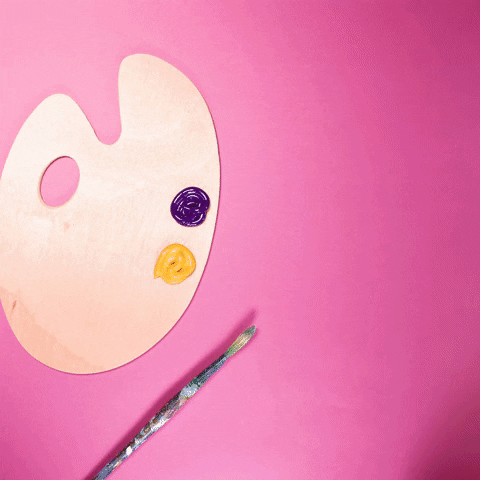
Before the invention of motion pictures, 'art' would have exclusively meant visual arts, a la paintings and sculptures. With the swerve into modernity, fine art has seen its definition expand to include cinema and films.
Merely is literature a kind of art?
After all, literary experience is so oft enriched by artistic appreciation. Nigh of us are likely to read Harry Potter in a new light later watching its motion-picture show adaptation, or answer to Christ's 'Terminal Supper' with his apostles in a different way afterwards seeing Leonardo da Vinci'southward magnificent landscape at the Convent of Santa Maria delle Grazie in Milan.

It's particularly interesting to see how literature and art portray – and repurpose – religion and myth, notice the areas where these mediums overlap and diverge, and reflect on how such similarities and differences open up new avenues of interpretation.
How does poesy differ from fine art?
Back in Ancient Greece, philosophers the likes of Socrates and Aristotle had considered the intersections between poetry and art.
Specifically, Socrates pointed out that what makes poesy and art similar is their openness to subjective interpretation, despite a singular representation of objects, people and events.
This means that a verse form is always going to be composed of the same set of words however way we read it, simply the meaning nosotros'd glean from this aforementioned verse form could differ radically from person to person.
This same phenomenon applies to painting. The concept behind verse-as-fine art is called ' ekphrasis ', which literally means 'description' in Greek, and is defined as :
A vivid description of a scene or a work of art inside a poem.
Basically, it'south the representation of painting through the use of words.

A specially interesting point of divergence for poesy and fine art concerns temporality – how do poetry and art nowadays fourth dimension differently?
While poems may seem to have more temporal liberty (beingness of a more than narrative mode of representation than fine art), this depends, likewise, on the genre of poetry we're talking near.
An epic poem like John Milton's Paradise Lost (1667) – being a narrative work in itself, would be a lot more temporally elastic than say, an Imagistic specimen similar Ezra Pound's notorious 'In a Station of the Metro' (1913), the entirety of which is merely two lines –
The apparition of these faces in the oversupply:
Petals on a wet, black bough.
This relates to the historic period-old debate of focusing on 'the individual' vs 'history'.
Is it the intensity of the moment or the expansiveness of our representation that matters more than?
Should our concern exist with the angle of the gaze, or with the altitude of i's perspective?
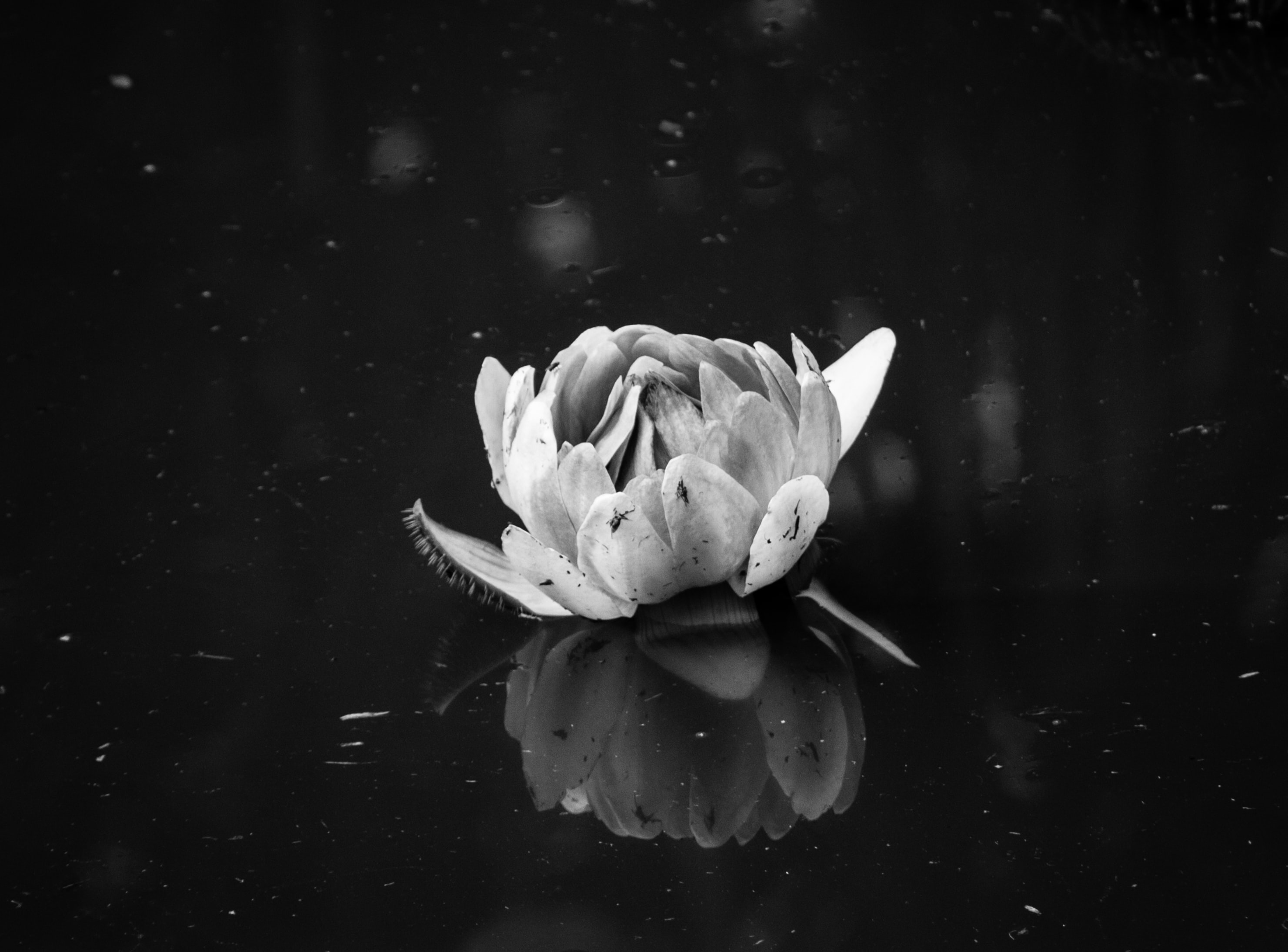
Such questions, information technology appears, always seem to arise at major historical crossroads, like the get-go half of the 20th century.
It's probably no exaggeration to say that the early-to-mid 20th century was a concatenation of turbulence and tragedy for the world, with WWI followed by the Spanish Flu and the Great Depression, finally culminating in WWII, which remains one of the biggest blots in human history.
Introducing Westward. H. Auden & William Carlos Williams
Unlike hardcore state of war poets such as Wilfred Owen and Siegfried Sassoon, W. H. Auden (1907-1973) didn't necessarily portray the pain of war by depicting violence on the field, but more than often, focused on the philosophical and psychological questions that came out of large-scale human suffering, like the two global wars.
Ane such poem, 'Musee des beaux Arts' (1939), interrogates this notion of suffering with an allusive nod to myth and fine art. The poem points to Ovid's business relationship of Icarus' fall in Metamorphoses via the Flemish Renaissance painter Brueghel the Elder'south Landscape with the Fall of Icarus (c. 1590), which is an example of the 'world landscape' ( weltlandschaft ) genre.

About 2 decades after the publication of Auden'due south poem, the American Modernist poet William Carlos Wililams (1883-1963) would besides publish a poem named after Brueghel's painting, dealing with a similar subject matter as Auden'due south 'Musee' simply conveying it in a starkly different manner.

Before we look at the specifics, it's worth paying attention to the title of each poem.
While Brueghel's painting is featured in both Auden'southward 'Musee des beaux Arts' and Williams' 'Landscape with the Autumn of Icarus', Auden chooses to name his poem later the museum which houses this painting ('Musee des beaux arts' literally translates into 'The Imperial Museum of Fine Arts', which is located in Brussels, Belgium), whereas Williams names his poem afterwards the painting itself.
Immediately, we run into a dissimilarity in the two poets' distance with the object in question (i.east. Brueghel's painting): Auden'southward scope is more macro, and concerned with context; Williams' is more zoomed-in, and buttressed past a desire to bargain with the thing in and of itself.
In this post, and so, permit's close read these ii poems alongside Brueghel's painting, and see how the synthesis of poetic and creative appreciation yields new ways of reading and looking.
Reading Westward. H. Auden'due south 'Musee des Beaux Arts' (1939): "the sun shone as it had to"

Almost suffering they were never wrong,
The Old Masters: how well they understood
Its man position; how it takes place
While someone else is eating or opening a window or just
walking dully along;
How, when the aged are reverently, passionately waiting
For the miraculous birth, there always must be
Children who did not specially desire it to happen, skating
On a pond at the edge of the wood:
They never forgot
That even the dreadful martyrdom must run its course
Anyhow in a corner, some untidy spot
Where the dogs go on with their doggy
life and the torturer'due south horse
Scratches its innocent behind on a tree.In Brueghel'southward Icarus, for instance: how everything turns abroad
Quite leisurely from the disaster; the ploughman may
Have heard the splash, the forsaken cry,
But for him it was not an important failure; the lord's day shone
Equally information technology had to on the white legs disappearing into the green
Water; and the expensive delicate ship that must accept seen
Something amazing, a boy falling out of the sky,
had somewhere to get to and sailed calmly on.
Despite the heavy subject matter – suffering, the poem's overall tone is remarkably blase. It begins with the hyperbaton of "Most suffering they were never wrong,/The Erstwhile Masters", reflecting a sense of dislodgement, of normalcy uprooted and things gone awry.
Having introduced such a grave topic, nonetheless, the persona goes on to enumerate a series of mundane events –
How information technology takes place
While someone else is eating or opening a window or
simply walking dully forth
It'due south hard to recall there should be pain, decease, torture, starvation and sundry other forms of suffering happening at the same fourth dimension as we're having lunch with friends, going about our household chores, or merely walking on the street.
Somewhere out there, something atrocious is happening to someone, just the truth is, 99% of the world doesn't know – or care.
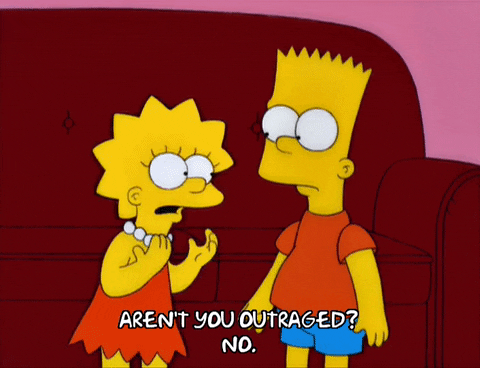
Auden'south bespeak is that this sort of troubling synchronicity is weaved into the very material of our daily being, but we never actually think about information technology.
Humans tend to consider incidents on a chronological airplane (yesterday, today, future), but this poem tilts our temporal awareness from a vertical to a horizontal centrality, and forces us to ask the difficult, but compassionate, question: while I'grand living and animate now, is someone else struggling and dying at this very same moment elsewhere in the earth?
While there are those in the first world "passionately waiting/For the miraculous birth" of a newborn, "there always must exist/Children who did not specifically want it to happen" (peradventure those who live in impoverishment, where families endure from constant shortage in resources).
Yet, the sharp, sobering truth about existence is that the globe just doesn't intendance that much, whether information technology be the greatest joy or "the dreadful martyrdom" – it's all just part of nature and its m scheme of things.
This sense of aloofness is tragicomically expressed in the euphemism of "dogs become[ing] on with their doggy/life and the torturer'due south equus caballus/Scratch[ing] its innocent behind on a tree".
A hero would be burning at the stake, but the dogs and horses would yet have to take a dump and get well-nigh their days.

Having gear up the scene, Auden alludes to "Brueghel'due south Icarus" in the 2d stanza as an example of nature's indifference to man'south misfortunes (notice how he establishes the big movie idea in this poem not through fine art, just words) –
In Breughel's Icarus, for instance: how everything turns abroad
Quite leisurely from the disaster; the ploughman may
Have heard the splash, the forsaken cry,
But for him it was not an important failure; the sun shone
As it had to on the white legs disappearing into the greenish
Water; and the expensive delicate send that must accept seen
Something astonishing, a male child falling out of the sky,
had somewhere to become to and sailed calmly on.
The give-and-take "quite" is certainly interesting here, every bit it could hateful either "fully, absolutely", or "somewhat". But the point here is that either way, information technology doesn't thing, because Icarus' fall into the body of water "was not an important failure", and that'south not only for the ploughman, merely likewise for the ship.
This idea that somehow only events or lives of 'importance' deserve attending underscores the utilitarian brutality of a war-torn world, when in that location's just too many deaths and tragedies for a single person's life to matter.
What's worse, keeping a altitude from others' suffering could as well lead to the aestheticisation of hurting, like how the ship saw "a boy falling out of the heaven" every bit "something amazing" – a sort of a romantic spectacle.
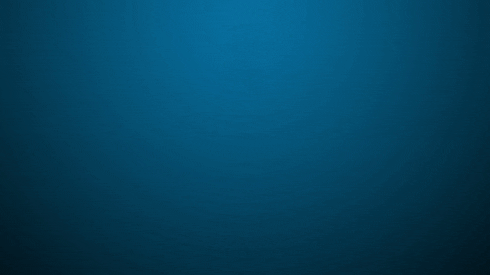
Only this urge to aestheticise suffering is dangerous, because information technology turns everything into a cinematic feel, in that nosotros consume, experience, forget, and ultimately, go on with our own 'humanly' lives subsequently the 'show'.
The prevalence of obligation modal verbs similar "must" and "had to" is also worth noting:
"There always must be/Children who did not particularly want it to happen"
"fifty-fifty the dreadful martyrdom must run its course",
"The lord's day shone/Every bit it had to on the white legs disappearing into the green/H2o"
"The expensive delicate ship that must have seen/Something amazing…"
When people say that someone "must" do something", they tend to either convey a real sense of necessity, or a self-convinced conventionalities that no other course of activity could utilise.
This sense of something having to happen is possibly a coping mechanism for people living in precarious times, when their values are at risk of being turned upside down with every stupor they witness in a conflict-ridden world.

But how could such incredible suffering happen, they inquire?
And why does one not feel sorrier for those who suffer?
How is it possible for morally decent people to carry on laughing and living – all the while being enlightened that hurting and suffering are happening every day?
Then, nosotros will ourselves into thinking that such tragedies 'must' happen, but because they had and have to, but considering it's all merely ane other chemical element in cosmic inexplicability.
Reading William Carlos Williams' 'Mural with the Fall of Icarus' (1960)

Anyone who's read William Carlos Williams' work would know that he's a man of few(er) words, at least in the context of poetry.
Periphrasis and verbosity have no place in his craft, which to a large extent reflects his modernist sensitivities as a poet.
While Auden is well-known for concision, when juxtaposed against WCW's writing, even he tin seem wordy.
Hither's 'Landscape with the Fall of Icarus' in full –
According to Brueghel
when Icarus fell
it was springa farmer was ploughing
his field
the whole pageantryof the year was
awake tingling
Nearthe edge of the ocean
concerned
with itselfsweating in the sun
that melted
the wings' waxunsignificantly
off the coast
at that place wasa splash quite unnoticed
this was
Icarus drowning
In 'Landscape', the poet starts with a journalistic tone ("Co-ordinate to Brueghel"), and interestingly, frames his innuendo to Icarus' tale within the artistic, non mythical (Ovidian), tradition.
Co-ordinate to Brueghel
when Icarus fell
information technology was leap
Information technology'due south like he's reporting a scene.
a farmer was ploughing
his field
the whole pageantryof the year was
awake tingling
Near
This sense of reportage, however, cuts against the artificiality of end rhymes ("Brueghel/fell/spring/ploughing"), all which rapidly fizzle out to get out backside weak echoes in "tingling" (stanza 3) and the terminal word "drowning".
The way Williams' verse form begins is a lot more optimistic than Auden's, with references to "spring" and its fertile harvest ("a farmer was ploughing/his field/the whole pageantry").

Yet, the word "pageantry" suggests an unnatural, theatrical quality to the environment.
As the poem reaches stanza 4 –
the edge of the sea
concerned
with itselfsweating in the sun
that melted
the wings' wax
– the phrase "the edge of the body of water" would perhaps recall "the edge of the wood" in Auden's 'Musee'.
"At the border of" something means beingness shut to danger and disaster, which, in Williams' example, forebodes the "Icarus drowning" at the end, but in Audens' situation, reverberates with faint historical notes of 1939 being at the brink of WWII.
But Williams' ascertainment of the sea being "concerned/with itself" exposes a problem that's not as explicitly spelt out in Auden's work.
Information technology is solipsism, selfishness and the prepare willingness of one to trivialise human misfortune that results in the tragedies of our earth.
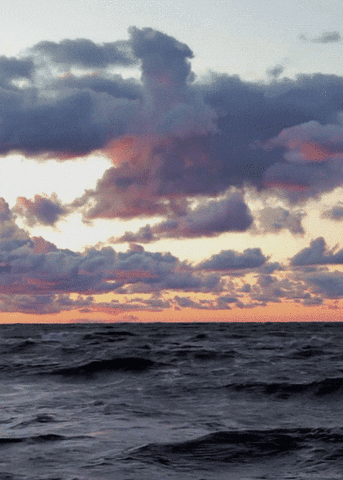
This idea is reinforced in the last two stanzas –
unsignificantly
off the coast
there wasa splash quite unnoticed
this was
Icarus drowning
In "unsignificantly" and "quite unnoticed", the negative prefix "un-" suggests the modern urge to deny, erase and unwrite what is meaning and what should be noticed – individual suffering.
Not dissimilar how warfare wipes out entire generations , and how cruelty demolishes whole races of people (e.g. the Holocaust).
But like how "everything turns away/Quite leisurely" from unpleasant events in Auden'south poem, so the splash from Icarus' fall went "quite unnoticed" in Williams' final stanza.
Humans are always too quick to ignore that which doesn't have to business concern us, as long equally our conscience and memory don't come a-knocking.

Curiously, the poem ends on an abrupt note – but in continuous tense – "drown- ing ".
This, perhaps, is faithful to Brueghel's portrayal in the painting, with Icarus' legs kicking mid-air as he struggles against the engulfing bounding main.
And so the act of suffering, equally it were, is suspended mid-frame, with the viewer and reader non being given the satisfaction of closure.

At least in Auden's version nosotros get to zoom out at the end and turn away to sail "calmly on" together with the ship; Williams doesn't even allow for this.
It'due south every bit if he's just switched off the television: the poet is the ane who'due south turned away, leaving us hanging, and granting no narrative, psychological, or philosophical coda. So there.
Merely if we terminate reading the verse form being preoccupied with the 'then what' and 'now what', and so perhaps we would accept fallen into the 'trap' of being as well "concerned/with [our]selves", with our need to complete.
Get over it, Williams seems to suggest, considering if we find suffering to be only like an insignificant, unnoticeable splash, so really, the demand for resolution should besides exist merely every bit unimportant.
Stay tuned for Part Two!
To read my assay of other poems, check out the posts below:
- An analysis of Maya Angelou's 'Nonetheless I Rise' and John Agard's 'Checking Out Me History'
- An analysis of Percy Bysshe Shelley's 'Love'due south Philosophy' and Lord Byron's 'When Nosotros Two Parted'
- An analysis of Robert Browning's 'Porphyria's Lover' and Elizabeth Barrett Browning'south 'The Delinquent Slave at Pilgrim's Point'
- An assay of Ballad Ann Duffy's 'War Photographer and Wilfred Owen'south 'Insensibility'
Source: https://hyperbolit.com/2020/10/02/reading-poetry-through-art-i-w-h-audens-musee-des-beaux-arts-william-carlos-williams-landscape/
0 Response to "Comparison Between Musee De Beaux Arts and Landscape of the Fall of Icarus"
Post a Comment